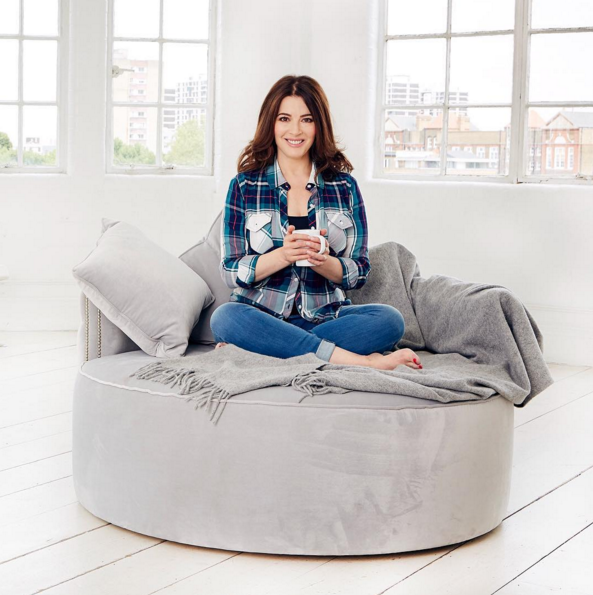Nigella Lawson: Clean Eating Is ‘a Way to Hide an Eating Disorder’

British chef and author Nigella Lawson speaks out again against the idea of “clean eating.” (Photo: Instagram)
Domestic goddess Nigella Lawson is famous for her simple but indulgent recipes — like her chocolate loaf cake — and she is not a fan of clean eating. While moguls like Gwyneth Paltrow are selling eating as a complicated lifestyle, Lawson wants to keep mealtime simple and pleasurable. At the JW3 Speaker Series in London this week, she said, “People are using certain diets as a way to hide an eating disorder or a great sense of unhappiness with their own body.”
It’s not the first time Lawson has brought up the topic. In October 2015, she told the BBC that the notion of “clean eating” implies “that any other form of eating is dirty or shameful.” Food shouldn’t be used as punishment for oneself, she explained, and one should enjoy food for being good instead of being “virtuous.”
Lawson may be onto something. Recently, Jordan Younger, author of Breaking Vegan, revealed that her obsession with a strict vegan diet led her to develop orthorexia, an eating disorder disguised as an obsession with eating only “healthy” food. “During my recovery process, I learned that the ‘superhuman willpower’ I’d exercised for so long is a typical eating-disorder warning sign,” Younger explained to Refinery29. “I was trying to control my life through food, and I believed I was worthy and powerful because I treated my body like a temple (which, to me, meant eating nothing but plants).”
Following a vegan or other restrictive diet doesn’t mean that you will develop an eating disorder, though. “An eating disorder isn’t caused by the clean eating trend, but it can be triggered by your environment if you already have the genetic disposition for it,” Eating disorder therapist Stacey Rosenfeld explains to Yahoo Beauty. “We live in a health-oriented culture where we get messages about treating bodies well — there’s nothing wrong with that — but it can easily cross the line.” Rosenfeld notes that in an age of social media, food philosophies are easily glamorized and disseminated, but she recommends sticking to the advice from nutritionists and doctors instead of celebrities selling lifestyle plans. Nutritionist and National Eating Disorder Association spokeswoman Sondra Kronberg has noticed that eating disorders nowadays are about purity and morality. “Instead of going to church or synagogue, people are saying, ‘Treat your body like a temple,’” she explains. “Eating ‘purely’ has taken the place of spirituality.”
“I don’t like people thinking they’re better people themselves for the way they eat,” Lawson told the BBC. “We make choices for ourselves either for our health, delight, according to our income, according to our taste buds, but I don’t think it should ever be a status symbol.” To put it bluntly, $10 cold-pressed green juices and quinoa bowls are a lifestyle choice — it doesn’t make you virtuous. “There is a way in which food is used either to self-congratulate — you’re a better person because you’re eating like that — or to self-persecute, because you will not allow yourself to eat the foods you want,” the 55-year-old British chef and author told the audience in London this week. “When I talk about food, I prefer talking about how it’s used for socialization, for pleasure,” Kronberg explains. “Food is a social tradition. It shouldn’t be punishment.”
Lawson’s recent cookbook Simply Nigella: Feel Good Food features recipes for easy-to-make comfort foods like Chocolate Chip Cookie Dough Pots and Thai Noodles With Cinnamon and Shrimp. “There are times when you need a slice of cake,” she told Good Housekeeping U.K. in November 2015. “You don’t eat it every day, but life has to be balanced and not too restricted.” Rosenfeld concurs: “When your diet is controlling you and it’s interfering with your life and ability to see your friends and family, and when there are anxieties about food and weight, that’s when there’s a problem.”
Lawson’s own mother struggled with an eating disorder, which Lawson only realized after her death. “I kind of put two and two together. I knew she had a thing about thinness, but I worked it out later,” she said on The Late Late Show a few days ago. “When she was dying, she allowed herself to eat. To wait until you’ve got a terminal disease to enjoy eating is an awful thing.”
Related:
